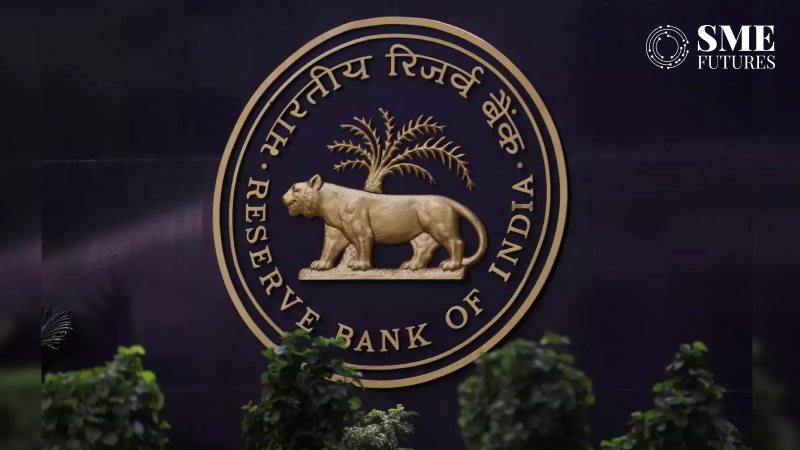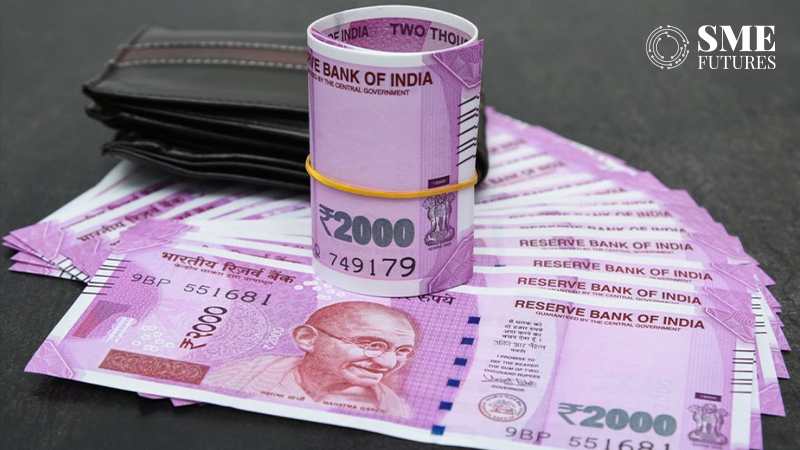Crypto ban to lead to job losses and loss of tech innovation, warns Cashaa Founder & CEO
Crypto ban will make it difficult to invests in equities on the NSE or BSE and in crypto on Indian exchanges like Bitbns, CoinDCX, etc. According to Kumar Gaurav, Founder & CEO, Cashaa, India would miss out on the blockchain, web3 talent pool, and all the innovation happening in this sector
Neil Banerjee July 12, 2023

MORE IN Interviews
Navigating the path to e-commerce success: Insights from trade policy expert
RegTech solutions can be a game changer in fintech regulatory scrutiny
From slum to CEO and now ‘Seema Aunty’ of Indian start-ups: Rahul Narvekar, The India Network
As the Indian Government contemplates the possibility of a crypto ban, it has sparked concerns among the players in the crypto industry. SME Futures spoke to Kumar Gaurav, Founder & CEO of Cashaa, about the potential of an incoming wave of disruptions due to the ban that would not only affect its extant employees but also cause major unemployment within the crypto industry.
Here are excerpts from the interview:
In the current regulatory landscape, how do you assess the feasibility of a crypto ban in India, and how would it impact the crypto industry as a whole?
The Indian Government has recently brought crypto under the purview of taxation and put TDS tax deduction norms on crypto trading. This could indicate an acceptance of crypto as an asset class as well as a revenue-earning avenue for the government. This said, we can never completely rule out the possibility of a ban as governments around the world are working on releasing their own blockchain-based digital currencies called CBDCs. Making other crypto currencies illegal would definitely aid in the adoption of such a CBDC. Cashaa has a robust standing as one of the influencers and shapers of policy-related discourse in the crypto space in India.
How do companies maintain compliance with relevant regulations while providing innovative and user-friendly banking services for the crypto economy?
Providing robust and reliable financial services to customers and partners which can stand the test of time and always pass muster on the regulatory front, should be the number one priority from the get-go. At Cashaa, we do this by vetting, intensively testing and getting approved by compliance all the new technological, process-related, operational and customer-experience related innovations that happen. We have developed and evolved at a deliberately slower pace than our peers primarily for this reason. In the long run, this has helped us to maintain our strong standing, with significant future growth potential, even after enduring multiple bear cycles in the crypto and financial industry over the past 7 years.
What are the potential long-term consequences of implementing a crypto ban in India, and how might it impact the country’s financial landscape?
A crypto ban in India will make it difficult for the everyday Indian investor who invests in equities on the NSE or BSE to invest in crypto on Indian exchanges like Bitbns, CoinDCX, etc. They will have to use international exchanges like the Cashaa Exchange where they can also earn inflation-beating interest just by holding their tokens. Existing investors could also transfer their crypto to the Cashaa Exchange and not lose their investments completely. In terms of long-term impact, India will lose out on the blockchain and web3 talent pool as well as on all the technological innovation happening in this space. It will lead to thousands of job losses at the Indian exchanges which will have to move to places like Singapore, Dubai, etc.
What innovative payment solutions have emerged in India to facilitate seamless crypto transactions in the absence of UPI, and how do they ensure security and convenience?
P2P or Peer-to-Peer payment mechanism is one of the alternatives which people use to buy USDT, stablecoin and other cryptos when UPI and NEFT payments modes are unavailable in India. Since your funds are held in escrow till you receive your purchased crypto in your wallet, it is a safe and secure way to buy crypto on platforms like Bitbns, a Cashaa client.
What challenges and complexities arise when applying traditional taxation systems to the decentralised and borderless nature of cryptocurrencies, and how can governments adapt to ensure fair and efficient tax collection?
The primary issue with taxing a decentralised and borderless asset like crypto is the actual application of the tax where it is difficult to ascertain the origin as well as the ownership of the asset. The taxation in such cases shouldn’t be punitive at high rates but should be at reasonable rates which can encourage voluntary declaration of income and payment of taxes within the investor community. Also, one should be taxed only when they trade in their crypto for fiat or a stablecoin, not on crypto-to-crypto trades as the gain in such cases is only notional. We always encourage our customers to declare and pay the appropriate taxes as per the jurisdiction in which they are doing their transaction.
What are the challenges that companies encounter when bridging the gap between the traditional banking system and the crypto industry? How has the company addressed these challenges?
Regulatory compliance is the biggest challenge facing the crypto industry today. Regulations are important in any new sector to provide proper grounding and accountability to the companies for their customers. But the regulations in this industry are yet to catch up in many jurisdictions around the world. We follow the regulations of the jurisdictions that we operate in. Also, you need to be lean and agile as a company in your operations, decision-making, company structure and strategies to adapt and thrive in the constantly changing regulatory environment for this relatively new asset class. Cashaa has been built keeping these core principles in mind.
What is Cashaa’s vision for the future of banking in the crypto economy, and how do you see the company’s role in shaping this future?
After becoming a go-to for the blockchain and crypto-based industry in the B2B space in the last seven years, Cashaa has recently launched its yield-focused personal wallet solutions for retail customers in over 200 countries. We see the primary growth drivers for our business as being inextricably linked to the mass adoption of the Cashaa wallet and exchange in the retail segment. Cashaa sees its true calling in bringing the benefits of blockchain technology to the masses. We want to make it very easy to invest for high yields, transfer funds overseas, pay with crypto for your everyday expenses and to be in control of your assets at all times. Also, we have been providing the key link in the form of access to fiat on/off-ramping to blockchain and crypto-based companies for over seven years now, which has also driven the broader adoption of the technology amongst the masses through the various solutions and innovations that have been done by these companies.











